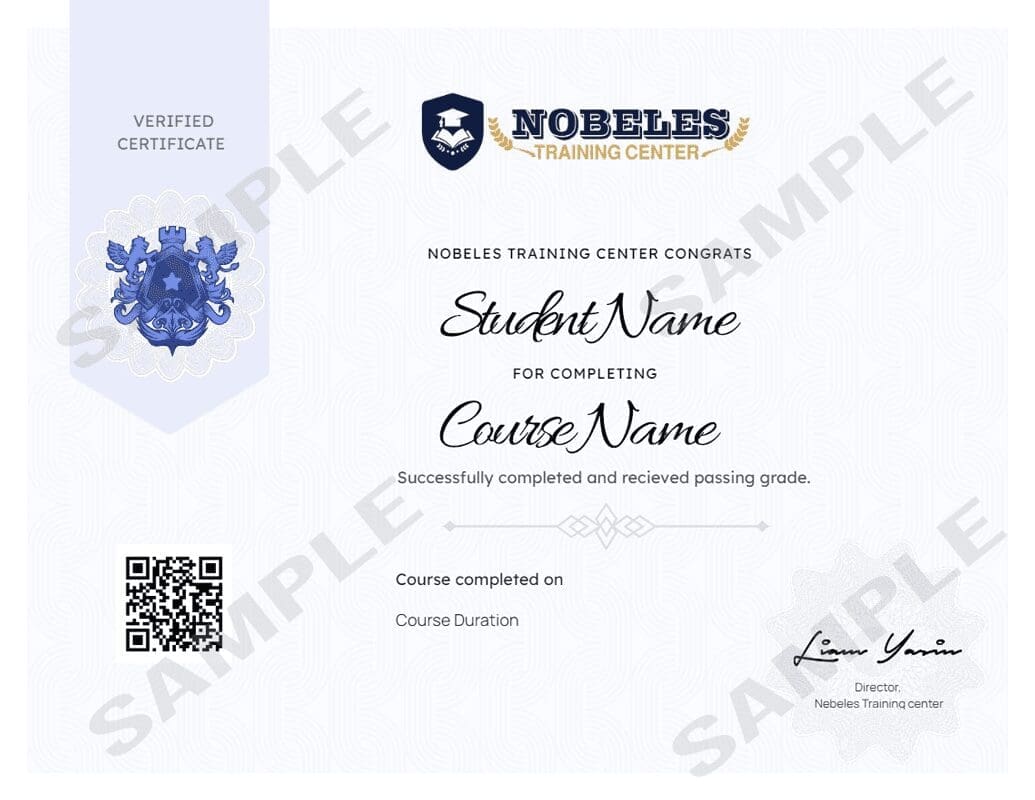Description
Curriculum
Instructor
Welcome to the Stress Management workshop. Positive and negative stress is a constant influence on all of our lives. The trick is to maximize the positive stress and to minimize the negative stress. This workshop will give participants a three-option method for addressing any stressful situation, as well as a toolbox of personal skills, including using routines, relaxation techniques, and a stress log system.
Please enter your name and email to view the content:
Curriculum
- 11 Sections
- 11 Lessons
- 10 Hours
Expand all sectionsCollapse all sections
- Understanding StressUnderstanding stress involves recognizing its causes, symptoms, and effects on physical and mental health. Awareness promotes effective coping strategies, enabling individuals to manage stressors and maintain overall well-being and resilience.1
- Creating a Stress-Reducing LifestyleCreating a stress-reducing lifestyle includes prioritizing self-care, regular exercise, balanced nutrition, and sufficient sleep. Mindfulness practices, hobbies, and social connections also contribute to reducing stress and enhancing overall mental health.1
- Altering the SituationAltering the situation involves actively changing stressful circumstances or environments. This may include setting boundaries, delegating tasks, or seeking support, enabling individuals to reduce stressors and enhance control over their lives.1
- Avoiding the SituationAvoiding the situation involves recognizing and steering clear of stress-inducing scenarios or individuals. While it can provide temporary relief, consistent avoidance may hinder personal growth and problem-solving skills, necessitating balance and evaluation.1
- Accepting the SituationAccepting the situation involves acknowledging circumstances beyond your control. This mindset fosters resilience, reduces anxiety, and promotes emotional well-being, allowing individuals to focus on what can be changed and find peace amid challenges.1
- Using Routines to Reduce StressUsing routines to reduce stress provides structure and predictability in daily life. Establishing consistent habits, such as exercise, meal prep, and relaxation time, can enhance stability, improve time management, and foster a sense of control.1
- Environmental Relaxation TechniquesEnvironmental relaxation techniques involve creating calming surroundings to reduce stress. This can include incorporating soothing colors, natural elements, and comfortable spaces, as well as using sounds or scents that promote tranquility and enhance well-being.1
- Physical Relaxation TechniquesPhysical relaxation techniques include practices like deep breathing, progressive muscle relaxation, and yoga. These methods help reduce tension, promote body awareness, and enhance overall well-being by lowering stress levels and improving mental clarity.1
- Coping With Major EventsCoping with major events involves acknowledging emotions, seeking support, and employing healthy coping strategies. Establishing a routine, practicing self-care, and allowing time for processing can foster resilience and aid recovery during challenging times.1
- Our Challenge to You"Our Challenge to You" encourages individuals to step out of their comfort zones by embracing new experiences, setting personal goals, and fostering growth. Engaging with challenges builds resilience, confidence, and valuable life skills.1
- Post TestPost Test1
Nobles Center

5 Students146 Courses
Review
$225.00
228 students
11 lessons
Language: English
0 quiz
Assessments: Yes
Skill level All levels
Nobles Certificate
At the end of the course, you can download a copy of your certified certificate.
Nobeles Academy
Mobile Application
Download the Nobeles center mobile app from the app app store, click the button below


